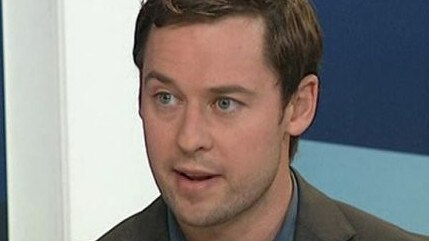Ben Roberts-Smith defamation case: journalist Nick McKenzie on edge as trap shoot drags on and on


Nine’s mild-mannered barrister Nicholas Owens SC employs a low-key style that seems designed to trap, rather than draw immediate blood.
But the war hero wasn’t the only one in Courtroom 18D whose reputation will live or die on the outcome of this high-stakes defamation case against Nine’s newspapers.
In the early days of the hearings, the newspapers’ gun investigative reporter Nick McKenzie was stranded in Melbourne by a Covid lockdown.
But on Thursday morning he was seated behind Nine’s heavyweight legal team in the full-to-capacity public gallery, showing every indication that he’d rather be in front of the witness, asking the questions.
At certain moments in Owens’ grindingly slow interrogation of the VC winner, McKenzie would stiffen and sit forward, only to slump back in his seat, resigned to keep any frustration to himself.
This is a career-defining case for the 10-times Walkley Award-winning journalist.
Roberts-Smith is suing The Sydney Morning Herald, The Age and The Canberra Times over their claim that he committed murder during deployments to Afghanistan.
But he is also personally suing McKenzie and two other reporters, Chris Masters and David Wroe.
A verdict against Nine would be a devastating blow for the newspapers, but even more so for the three journalists.
In April, McKenzie tweeted a plea to Australia’s media to set aside eight weeks to cover the trial, which he described as “a difficult, vital search for truth in (and after) war for Australia and Afghanistan”.
He didn’t need to ask.
There wasn’t a spare seat in the courtroom on Thursday.
Owens spent most of the day taking Roberts-Smith in intricate detail through some of the missions that form the basis of the defamation claims, down to precise details of the path he took through each village, frequently pausing to have him mark locations on maps.
If the towering former soldier saw danger lurking behind the questions, he wasn’t giving anything away. No doubt his formidable legal team had taken him through all the likely booby traps. His answers were firm and polite. Only occasionally did he show something approaching mild irritation.
At one point, Owens wanted to know how Roberts-Smith had moved the body of a man he had just shot.
“You dragged it from an arm or a leg?”
The former soldier sighed.
“I don’t remember.”
If it was slow going for the journalists covering the trial, it must have been exasperating for those who are at the centre of it.
By the end of the day, McKenzie had advanced into the court and found a seat with his solicitors – looking for all the world like he was heading for the bar table.






If former soldier Ben Roberts-Smith took any hits in his first day under cross-examination, he wasn’t showing it.